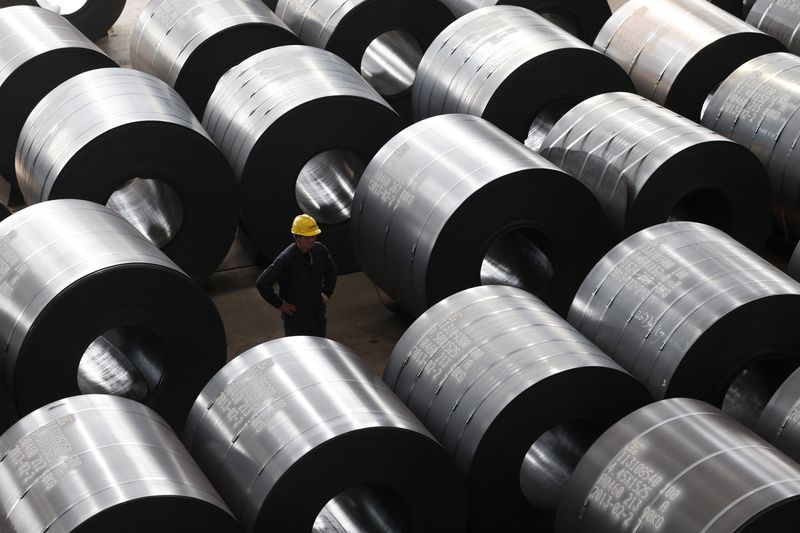* Iron ore has gained 18 pct in February
* Chinese steel trader inventory at highest since last July
By Manolo Serapio Jr
MANILA, Feb 29 (Reuters) - Shanghai steel futures climbed more than 1 percent on Monday in anticipation of brisk seasonal demand, boding well for iron ore that is on track to mark its biggest monthly gain since 2012.
Iron ore topped $50 a tonne last week for the first time since October, but has since slipped back below that level in a testament, analysts say, to how oversupplied the market remains.
Sustained gains in Chinese steel prices may help strengthen iron ore prices as improving margins push steelmakers to increase production, said Helen Lau, analyst at Argonaut Securities in Hong Kong.
"Short term, $50 may be a strong resistance for iron ore. We're still talking about a seasonal increase in steel demand and not a secure or structural increase," said Lau.
Iron ore for immediate delivery to China's Tianjin port .IO62-CNI=SI stood at $49 a tonne on Friday, based on the latest available data compiled by The Steel Index. The spot benchmark peaked at $50.50 last Tuesday, its highest since Oct. 27.
The steelmaking raw material has gained 18 percent so far in February, its biggest monthly jump since December 2012.
Rebar, a construction steel product, was up 1.5 percent at 1,944 yuan ($297) a tonne on the Shanghai Futures Exchange SRBcv1 by the midday break. Iron ore on the Dalian Commodity Exchange DCIOcv1 was flat at 363.50 yuan a tonne.
Construction typically picks up during spring time in China and traders have been stocking up on steel ahead of demand potentially improving from March onwards.
Inventory of five major steel products, including rebar, held by Chinese traders stood at 12.52 million tonnes as of Feb. 26, based on data compiled by consultancy Mysteel.
That was the highest level since July last year, said Lau.
China's home prices rose for a fourth straight month in January with big cities leading the gains, data showed on Friday, as the government's pro-growth policies gain traction. Asian steelmakers are still weighed down by oversupply and low prices, with Moody's Investors Service saying producers in the region would see their earnings this year fall to levels even lower than in 2015 "because production volumes and spreads will contract further".
"As demand for steel in China declines further - against the backdrop of slower Chinese economic growth - the country's steel producers will continue to export their giant stockpiles of steel, pressuring prices in Asia," Jiming Zou, senior analyst at Moody's, said in a statement.
"Anti-dumping measures and safeguard duties will slow Chinese export growth, but overall volumes will remain high." ($1 = 6.5470 Chinese yuan)
